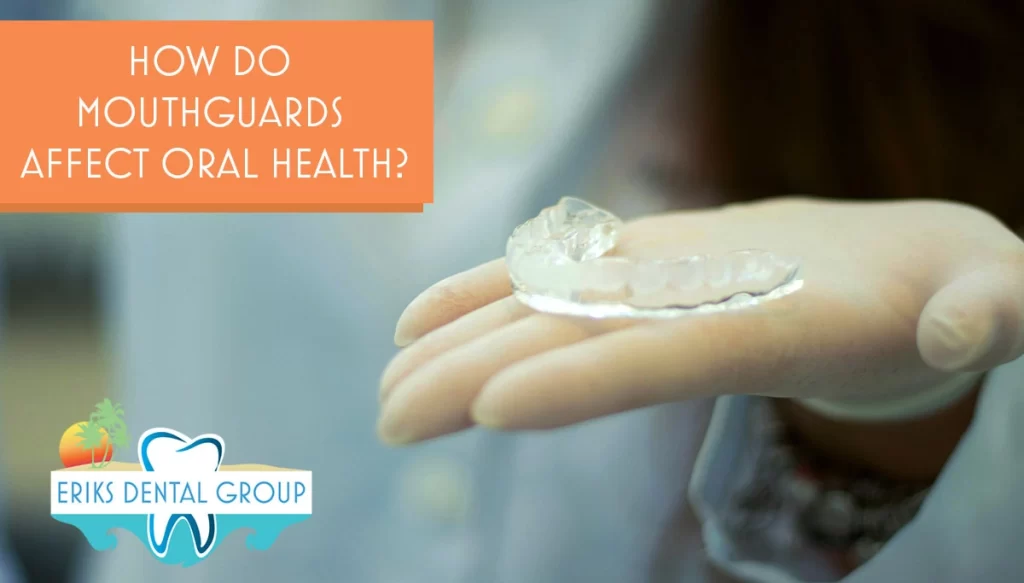Protecting your smile goes beyond daily brushing, flossing, and regular teeth cleanings. Mouthguards are a simple yet powerful way to prevent dental damage, reduce pain, and support long-term oral health.
Whether you’re active in sports or dealing with nighttime grinding, mouthguards offer essential protection for a healthy, confident smile.
Regardless of whether you are an athlete, a teeth grinder, or someone currently undergoing orthodontic treatment, wearing a mouthguard can significantly impact your teeth, gums, and overall oral health.
What Is A Mouthguard?
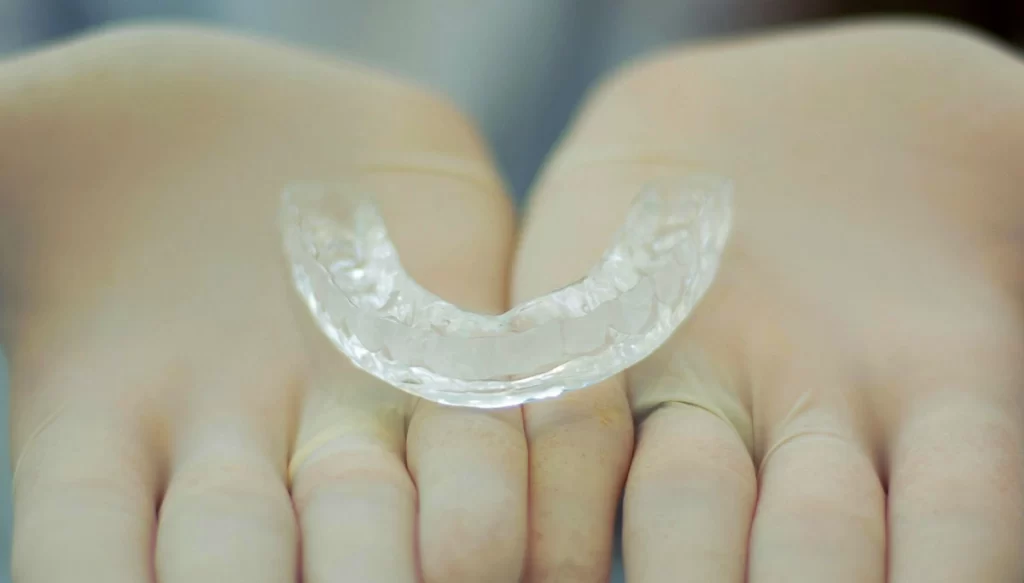
Mouthguards are typically made out of plastic and can be worn on your top teeth, bottom teeth, or on the top on bottom teeth simultaneously. They are worn for a multitude of reasons, such as TMJ disorder, bruxism, during impact sports, and if you have issues with grinding your teeth or clenching your jaw.
Three Different Types Of Mouthguards:
1. Stock mouthguards
Stock mouthguards are most commonly found and easily accessible. If you are looking for a quick fix and easy solution, a stock mouthguard is going to fit your needs. It can not be adjusted or molded, it is to be used as it comes.
Pros:
- Affordable
- Easy to use
- Convenient
Cons:
- One size fits all, so it does not offer the best fit
- Can shift since they are not molded to your teeth
- May interfere with breathing or speaking clearly
2. Boil And Bite Mouthguards
Made from thermoplastic material, allowing these mouthguards to fit your mouth more precisely and comfortably than the stock mouthguards.
Pros:
- Tight and secure fit
- Affordable and found at most sports stores
Cons:
- Not the most durable
- Material can lose its shape over time
- May need to be replaced more frequently due to wear and tear
3. Custom Fit Mouthguards
Custom fit mouthguards are the highest quality, providing the most protection and the best fit for you. These are ideal for someone who needs to wear a mouthguard daily, not just on occasion.
Pros:
- Offer the best fit, therefore, most comfortable
- Best protection
- Last a long time
- Tailored to specific oral health needs, including bruxism and TMJ
Cons:
- Expensive
- Not accessible to everyone
When Should You Wear A Mouthguard
Mouthguards are there to help protect you and your teeth. This could be actively during the day while out engaging in sport-like activities or passively during the night, when you are not even aware of the damage you are doing.
Sports
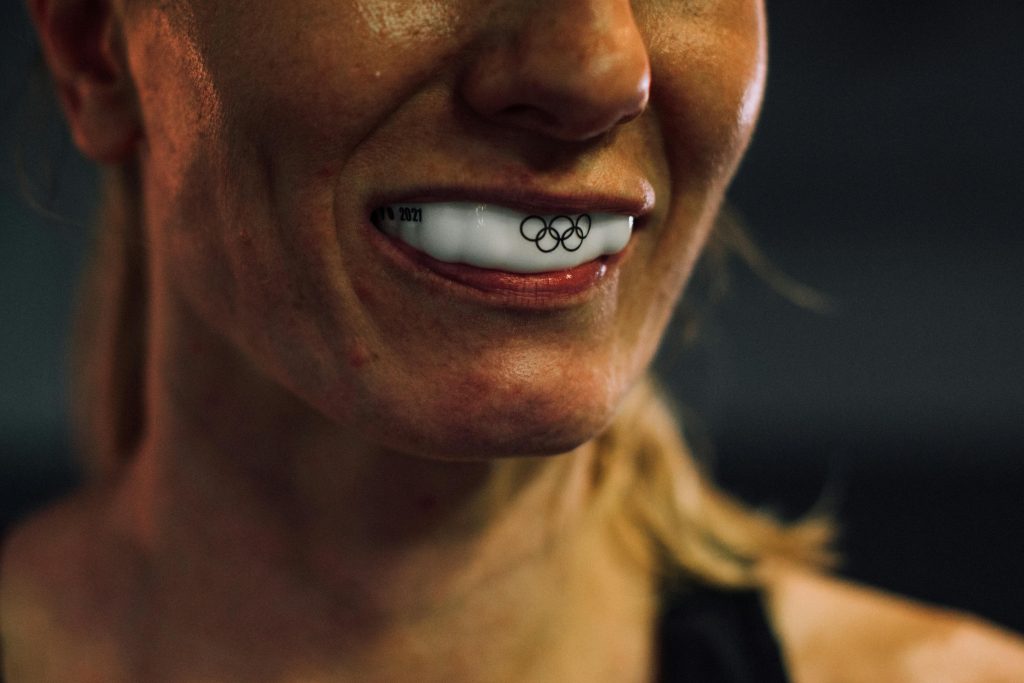
Sports, though a lot of fun, pose risks to your teeth when they are not protected properly. For example, hockey, football, boxing, and basketball all put the players at a high risk for facial injuries, and therefore their mouths.
However, a well-fitted mouthguard acts as a shock absorber, which will reduce the risk of:
- Broken or chipped teeth
- Lip and cheek bruises and cuts
- Tooth loss
- Tooth misalignment
The mouthguard cushions the blow from any sudden impacts, which helps to preserve the integrity of your teeth. Many sports organizations and leagues now require their athletes to wear mouthguards for safety, especially in high-contact environments.
Bruxism
Some may grind or clench their teeth at night, often without realizing it. Without treatment, chronic bruxism can lead to cracked fillings, increased tooth sensitivity, and even gum recession.
This is called bruxism, and it can cause:
- Tooth wear and enamel erosion
- Jaw pain
- Headaches
Mouthguards act as a protective barrier between your upper and lower teeth. This helps to evenly distribute pressure, which in turn minimizes any long-term damage caused by the clenching and grinding.
TMJ Disorder
TMJ or temporomandibular joint disorder can be caused by a multitude of reasons, one of which is grinding or clenching your teeth at night.
Mouthguards can help relieve and prevent TMJ symptoms by:
- Reducing tension in the jaw muscles
- Keeping the jaw more related and aligned
- Minimizing pressure on the joints
A mouthguard can be a simple way to manage TMJ related pain. If you are experiencing persistent jaw discomfort and pain, a custom-fitted TMJ mouthguard can help you reduce symptoms and improve jaw mobility over time.
How To Take Care Of And Clean Your Mouthguard
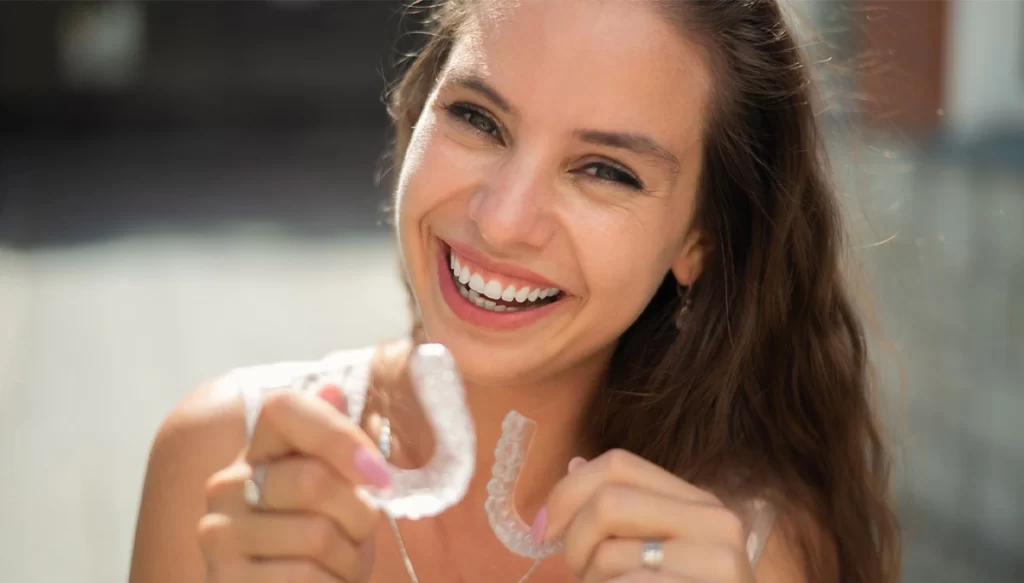
Like anything hygiene-related, wearing a mouthguard requires regular cleaning. Cleaning your mouthguard daily, brushing and flossing, as well as storing it properly, all contribute to a healthy and better oral hygiene. Neglecting to clean your mouthguard can lead to:
- Bacteria buildup
- Bad breath
- Oral infections
Here are some steps you can follow to ensure your mouthguard supports your oral health rather than compromises it:
- Rinse after each use with cold water or mouthwash
- Clean after each use
- Never share your mouthguard
- Inspect if for damage and replace when needed
- Let it dry completely before storing to avoid mold growth
- Store it in a ventilated case away from direct sunlight or heat
When to Replace a Mouthguard
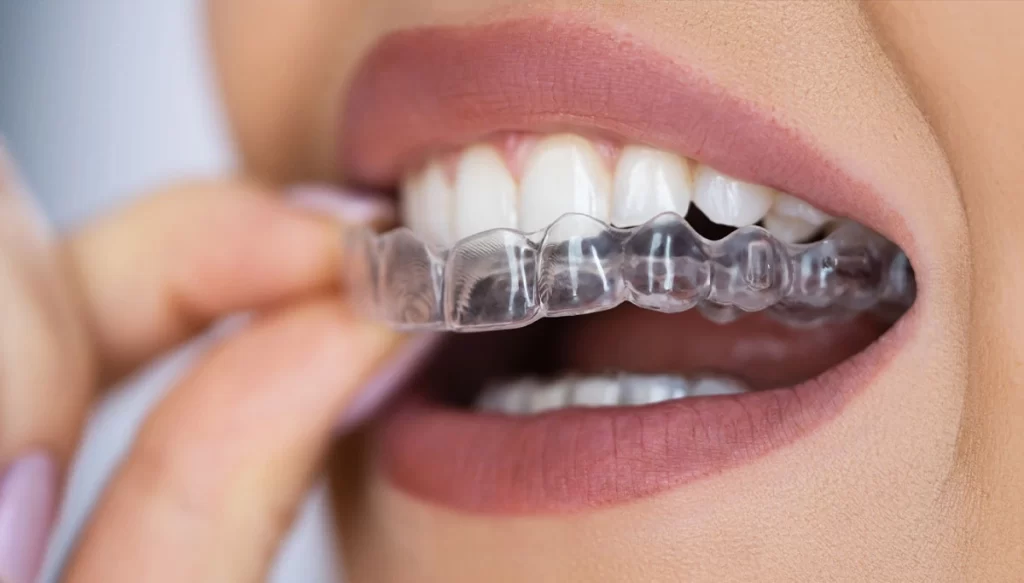
Even the most durable and well-maintained mouthguards have a limited lifespan. Over time, wear and tear, and maybe even oral anatomy, can make a mouthguard less effective. It is important to check the condition of your mouthguard to ensure it is still protecting your teeth as it is intended to do.
Here are some signs it might be time to replace your mouthguard:
- It no longer fits properly
- It is cracked, warped, or torn
- There is an odor
- Persistent buildup
- Your Bite has changed, for example, fillings
Wearing a damaged or improperly fitted mouthguard can do more harm than good, so it’s best to consult your dentist if you’re unsure whether a replacement is needed.
Boynton Beach Dentistry
Mouthguards are more than just protective gear, they are essential tools that contribute to long-term oral health and wellness.
Whether you are an athlete, someone who grinds their teeth at night, or dealing with TMJ discomfort, using the right mouthguard can help prevent dental issues and reduce pain.
At Eriks Dental Group, we are the official sponsor of smiles, ready to help you find the best mouthguard for your needs.
Ready to protect your smile? Call Eriks Dental Group today at 561-7333-4004 to schedule an appointment and take the first step toward healthier teeth.

